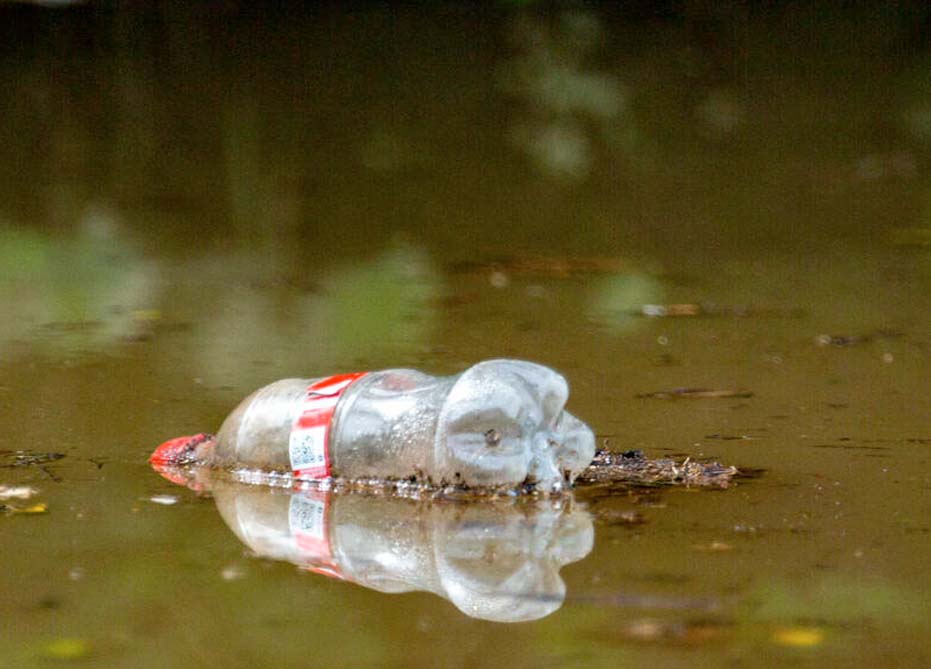At the end of this month, delegates representing governments from all over the globe will come together to continue discussions towards a Global Plastics Treaty.
We need a Global Plastics Treaty because the pollution crisis is impacting every corner of the Earth. From deep in the Mariana Trench in the western Pacific Ocean, to the highest mountain peaks, it’s in the air we breathe and the food we eat. The Global Plastics Treaty is a once-in-a-generation opportunity to solve the plastics crisis. If world governments get this right, we could end runaway plastic production and start to clean up the air, oceans and land again.
We know plastic pollution stems from plastic production, so the first thing we need to do is to turn off the flow of unnecessary single-use plastic. Around 99% of plastic is derived from oil and gas, and produces harmful emissions at every stage of its lifespan, so keeping oil and gas in the ground to mitigate the climate emergency makes sense, too.
But there are other, lesser known bits about plastic pollution that will be really important in negotiations. The global north is the hotspot for plastic production, yet the global south is disproportionately impacted by the pollution plastic causes. And of course, this is where the climate crisis and social injustice intersects. Small islands and developing states, coastal communities, indigenous peoples, disabled people, people on lower incomes, affected workers and waste-pickers sit on the frontline of this trifecta of crises.
Since colonisation, linear economies that take, make and throw away have been pushed upon the people of all the lands to which I whakapapa, in place of their traditional ways of living that were circular, regenerative, restorative. Western diets smothered in one, two or even three layers of plastic and called healthy and hygienic and ‘correct’ replaced ‘primitive’ sovereign diets that relied on a familiar relationship with the earth and the ocean. Plastic producers – Coca-Cola, to be frank – further capitalise on their remoteness and vulnerability by selling so much single-use plastic to islands where there is no infrastructure to recycle.
In this age of plastic, it is so abundant in our oceans that taonga species like the majestic toroa mistake plastic bottles for food, and slowly starve to death as a result. The moana, the whenua, and all our native wildlife are central in the stories of our creation, of how our people came to live as they did, and lessons for us to learn and grow by. As tangata whenua and tangata moana, I would say, they speak to our existence. When climate and pollution threaten the mauri of these, I feel it personally, like a threat to my own existence.
Matauranga Māori in these pūrākau or stories that once guided our tupuna is the same knowledge that can guide us all today to live in a way that cares for Papatūānuku and values everything upon her. Zero waste advocates talk about circular economies but this is something that indigenous communities were doing many lifetimes before it became a thing. Like ‘whenua ki te whenua’, a practice that exemplifies how we understand regeneration and circularity.
The impacts of plastic pollution and climate change vary for different communities, regions and parts of societies. Perspectives of those most impacted need to be well understood and be present through the creation and implementation of a strong Global Plastics Treaty. And tangata whenua and tangata moana are holders and guardians of knowledge that can lead us out of this mess and to a way of life that is thoughtful, regenerative and fair.
We have a unique opportunity to develop solutions that address the global plastic pollution crisis. These solutions can be guided by the cultural teachings of our past, lessons and wisdoms that speak to living in absolute harmony with the environment. More than 43,000 people from around Aotearoa New Zealand have signed a petition calling for the New Zealand Government to support a strong Global Plastics Treaty. We have a public mandate to support significant change that addresses the plastic pollution crisis that ensures a healthier future for our children and their children.

Call on the NZ Government to ban unnecessary single-use plastic bottles* in NZ, and to incentivise reusable and refillable alternatives.
